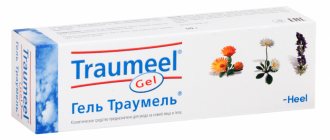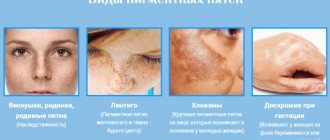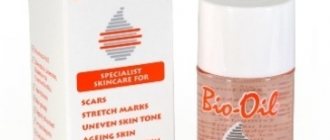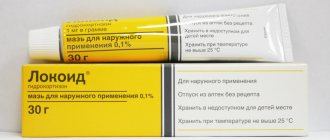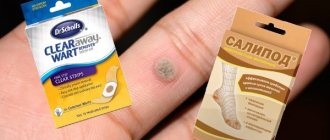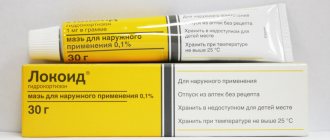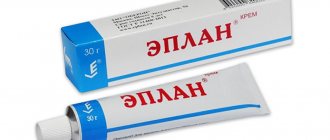- December 29, 2019
- Dermatology
- Daria Zabarnaya
A home medicine cabinet includes a large number of different medications. And, as a rule, an alcohol solution of salicylic acid is always present among them. The popularity of this product among the population is explained by its high efficiency and low price. Salicylic alcohol is especially often purchased by young people to combat skin rashes. The drug is used not only at home, but is also widely used in medical institutions and cosmetology clinics.
Are salicylic alcohol and acid the same thing?
Salicylic (phenolic) acid is a powder with white crystals and is odorless. This is an antiseptic drug that has anti-inflammatory and antimicrobial effects.
In its pure form, the acid is too concentrated and can cause severe burns to the skin. Therefore, for treatment, an alcohol solution containing 1 or 2 percent salicylic acid is used. It is this derivative product that relieves acne and other skin problems. It suppresses the secretion of sweat and sebaceous glands, in high concentrations it has a keratolytic effect, and in low concentrations it has a keratoplastic effect.
What is salicylic acid
This substance is from a group of compounds called salicylates. Salicylic acid is a type of phenolic acid and beta-hydroxy acid and is in the same class of drugs as aspirin, although it is used differently.
Salicylic acid is colorless and odorless. The structure allows it to be oil soluble, which means it can penetrate the lipid layers of the skin. Salicylic acid is considered a keratolytic because it clears bacteria and oil from pores that can cause clogged pores, causing blackheads and pimples. Salicylic acid is able to break the bonds between epidermal cells, acting as a natural exfoliant that removes the stratum corneum of the skin, making its surface smoother.
Discovery of a healing remedy
The first to develop salicylic acid was the Italian chemist Rafael Piria, who lived in the nineteenth century. He divided the bitter glycoside contained in willow bark (salicin) into two parts and found that the acidic component had healing properties. Piria isolated this substance from the bark and successfully determined its chemical composition and then synthesized it.
1838 is officially considered the year of the discovery of salicylic acid. Its best known derivative today is aspirin, developed by Hoffman in 1897 by acetylation of a chemically pure acid.
At first, the antiseptic product was used to treat rheumatism. And only then it began to be used in dermatology for the treatment of external skin rashes caused by microbes and bacteria.
Composition and release form
According to the instructions for use, salicylic alcohol is a synthetic product that consists of two components: ethanol and salicylic acid dissolved in it in varying concentrations. Typically, the solution contains 70 percent ethyl alcohol and 1 or 2 percent acid. The antiseptic dissolves completely in ethanol, and as a result a concentrated drug with pronounced medicinal properties is formed. The solution is packaged in dark glass bottles with a capacity of 25 and 40 milliliters.
Contraindications for the use of salicylic alcohol
Salicylic alcohol is available in different concentrations. Therefore, the first thing you should know when purchasing a product is the percentage ratio. If you don’t want to damage your skin and want to avoid burns, then choose salicylic alcohol with an acid concentration of 1 or 2%.
In addition to this rule, there are a number of contraindications to the use of salicylic alcohol:
Dry skin. Alcohol products dry out the epidermis. If you already have dry skin, then avoid using salicylic acid. The first symptoms are a feeling of tight skin and flaking. If the symptoms do not go away after 1-2 days, then do not use salicylic acid-based products. Individual intolerance. Check your reaction to salicylic acid in advance. To do this, put a couple of drops of the product on the bend of your elbow. Check the reaction after 15 minutes. There should be no rashes, redness, itching or other unpleasant sensations. Large affected area. If pimples cover your face, back and other parts of the body, then choose another remedy. Doctors do not recommend actively exposing the skin to salicylic alcohol.
The product is not absorbed into the skin and does not accumulate in the body. Therefore, no side effects have been recorded when using salicylic alcohol during pregnancy or lactation. But, before using the product, consult your doctor.
Cases of overdose of the drug in medicine have not been recorded. It is not recommended to actively treat the skin with salicylic acid. If the product accidentally tips over and spills onto the skin, immediately treat the surface with water. Then dry the skin and apply medicinal ointment.
Storage conditions and price
Although the shelf life of salicylic alcohol, according to the instructions for use, is three years, after opening the product is only good for one month, as it tends to erode. If an unpleasant odor or sediment occurs, it is better to stop using the solution. The drug should be stored in a cool place, protected from sunlight and out of reach of children.
The price of salicylic alcohol depends on the percentage of acid and the volume of the bottle. But this is a very cheap product, the cost of which usually does not exceed 25 rubles even in the most expensive pharmacies. On average, a 40-ml bottle of a 1% solution costs 12-14 rubles, and a 2% solution costs 13-16 rubles.
Price
Salicylic alcohol is sold in dark glass bottles of 25 and 40 ml. The drug can be stored for 3 years. After opening the bottle, the alcohol is only good for 1 month, as it tends to erode. If sediment appears in the bottle or there is an unpleasant odor, the product should not be used. The best storage location is a cool, dry room out of direct sunlight.
You can buy the drug at any pharmacy. The cost varies slightly depending on the volume of the medicine and the percentage. Average price in pharmacies in the Moscow region:
| Drug name | Volume | Price in rubles |
| Alcohol solution 1% | 40 ml | 11,00 |
| Alcohol solution 2% | 40 ml | 9,00 |
| Alcohol solution 2% | 25 ml | 8,00 |
Rules for using antiseptic
How to use salicylic alcohol varies depending on the problem at hand. There are general recommendations that must be followed:
- The product is used for local treatment of affected skin areas.
- The daily dose for adults should not exceed 10 milliliters, for children over one year old - 1 milliliter.
- If the affected area is small, the composition should be applied once a day.
- For sensitive skin, it is better to use an alcohol antiseptic every other day.
- If possible, apply the product locally, avoiding simultaneous treatment of several areas (spot application using a cotton swab).
- Before using the solution, the skin must be cleansed of dirt and cosmetics.
- You can continue treatment with salicylic alcohol for two weeks, then it is recommended to take a break.
- A concentrated solution can injure the skin and cause burns, so it is better to consult a doctor who will individually select the dosage and indicate the frequency and duration of use of the drug.
Salicylic lotion to combat acne
Those with sensitive skin face problems when choosing products for problem areas. Almost all bottles contain alcohol. As a result, the skin becomes blotchy and dry. To prevent this from happening, they produce salicylic lotion to combat pimples with and without alcohol. Ready-made products are distinguished by their composition. In addition to salicylic acid, manufacturers add anti-inflammatory herbs and invigorating ingredients.
If you are not satisfied with the composition, then make salicylic lotion at home. To do this, follow these steps:
Choose an additional ingredient. It all depends on your skin type. If you need to relieve inflammation, take calendula flowers. Brew a glass of herbs and leave to brew. If your skin is oily, then replace the medicinal plant with propolis tincture. After the herb has cooled, strain the infusion. Then mix with water and salicylic alcohol. For a container of 300–400 ml, 100 ml of the product or ¼ part is injected. Pour the resulting lotion into a glass vessel. Store the home remedy in a dark place.
The method of using this lotion is standard. Soak a cotton pad and wipe your skin twice a day. However, avoid the area around the eyes.
Treatment of acne and blackheads
To eliminate rashes on the face, as a rule, a 1% solution of salicylic acid is used. An antiseptic will get rid of acne if it is caused by inflammation of the sebaceous glands. Extensive rashes can be treated with a cotton pad on which the drug is applied. If there are few problem areas, you should apply the solution pointwise using a cotton swab. After treatment, you must wait fifteen minutes and then neutralize the acid by washing with plain water. If over time the result is not achieved, with the permission of the dermatologist, you can proceed to the use of 2 percent salicylic alcohol.
The product helps:
- reduce sebum secretion;
- tighten and cleanse pores;
- disinfect the skin;
- dry;
- exfoliate old cells.
To get rid of acne on the face, salicylic alcohol can be used as a mask. To do this, you will need to additionally purchase cosmetic white or blue clay, which is a cleanser that tones the skin and heals wounds.
To prepare the mask you will need a 1 or 2 percent alcohol solution of salicylic acid, one package of clay and water. Clay and water should be mixed to the consistency of a thick paste and ten drops of antiseptic should be added to the mixture. The mask should be applied to a clean face for fifteen minutes, twice or thrice a week.
For people with oily skin prone to blackheads, salicylic alcohol can be a real salvation: it deeply cleanses pores, stimulates skin renewal and removes sebaceous plugs. To achieve a lasting effect, you need to wipe your face with the solution at least three times a week. After the procedure, be sure to apply a moisturizer or toner to the skin.
Elimination of pigment spots
Melanin is the pigment that gives skin its dark tint. When it is distributed unevenly and accumulates in one place, unsightly spots can appear on the body. They look unaesthetic, so it is not surprising that people begin to look for ways to solve the problem. Salicylic alcohol helps get rid of stains. Reviews from women indicate that it is a real salvation from hyperpigmentation and allows you to lighten and even out skin tone.
The simplest method of dealing with age spots is to wipe them daily with an antiseptic solution. You can do this twice a day - in the morning and before bed. Before applying the drug, the skin should be cleaned of makeup and dirt.
The use of salicylic alcohol for age spots is recommended for people with oily or combination skin. Dry skin is best treated with products that do not contain phenolic acid. The course of treatment lasts fifteen days. If it was not effective enough, therapy can be repeated after a five-day break.
Reviews
(Leave your feedback in the comments)
“Olga, 21 years old” My grandmother told me about salicylic alcohol when I was a teenager and suffered from acne. Then the drug helped me get rid of the problem in just 2 weeks - during this time the pimples dried out, noticeably decreased in size, and after another 3-4 weeks disappeared completely (during this period I no longer used the drug). Now I periodically use it when acne appears on my face or back. By the way, when the pimple is fresh, 2-3 days of treatment is enough, and it goes away without any traces. For that kind of money, it’s basically every girl’s dream.
“Konstantin, 34 years old” we use salicylic alcohol with the whole family. With his help, my daughter fights acne (and I must say, very successfully), and he helped his wife remove a wart from her hand. Is it true. She used it in combination with other products designed specifically for removing warts. And I treat calluses with salicylic alcohol. I apply it to the callus several times a day (after thoroughly steaming), and after 3-4 days I simply remove the diseased skin to a healthy area. The heels after this procedure really look like those of a baby from an advertisement. I advise you to try it if anyone has the same problems.
* — Average value among several sellers at the time of monitoring, is not a public offer
Treatment of fungus, ringworm and calluses
In accordance with the instructions for use, salicylic alcohol for the treatment of lichen and fungal infections on the body should be used only as part of complex therapy.
Since the drug has an anti-inflammatory and bactericidal effect, it is often used to eliminate nail fungus. First, you should steam the nail plate using a vinegar, soap-soda or salt bath. This will take about fifteen to twenty minutes. This procedure will help the antiseptic to quickly reach the source of infection and neutralize pathological microorganisms. After the bath, the nail must be cleaned and dried well, and then apply salicylic alcohol to it. You can get rid of the fungus if you repeat the procedure twice a day for at least a month. In some cases, longer therapy is needed (up to six months).
The drug also effectively fights the manifestations of various types of lichen. For treatment, a 2 percent solution is applied two to four times a day to the affected area. To prevent the skin from drying out, after using the product, apply a thin layer of nourishing cream on top of the treated area. When treating lichen, salicylic alcohol shows better results when combined with sulfur ointment and tar.
The antiseptic solution removes dead keratinized skin cells quite well, so it is suitable for treating wet calluses and corns. The formations are impregnated with salicylic alcohol, softening them, and then the skin is cleaned with a stiff brush or pumice stone.
Instructions for use
Today you can buy a solution of salicylic alcohol in any concentration at any pharmacy. Low price and high efficiency made the drug very popular among the population. Young people especially often buy alcohol to combat teenage pimples, rashes and acne. It should be remembered that this is a concentrated solution that can not only injure the skin, but also cause deep burns. For this reason, self-treatment is unacceptable. The duration and frequency of use of salicylic acid should be indicated by the doctor on an individual basis.
According to the instructions, an alcohol antiseptic is used for local treatment of the painful area. More often, spot application using a cotton swab is used. If the lesion is small, then you need to use the composition for treatment once a day. For sensitive skin, it is better to use the drug every other day. Treatment lasts no more than 2 weeks. Do not apply the alcohol solution to healthy skin, as there is a high probability of damaging uninfected tissue.
For acne
In order to get rid of blackheads and pimples on the face, use a 1% solution of acetylsalicylic or salicylic acid. If there are a lot of rashes, then the product is applied to a cotton pad, then the problem areas are wiped; if there are few, a cotton swab is used, and the drug is applied pointwise. After treatment, you need to wait 15 minutes, then wash your face with plain water to neutralize the acid. If the result does not appear over time, after consultation with a dermatologist, you can use a 2% acid solution.
The drug will be effective only when acne is caused by inflammation of the sebaceous glands. Alcohol helps:
- disinfect the skin;
- cleanse and tighten pores;
- exfoliate old cells;
- dry;
- reduce sebum secretion;
- reduce acne;
- stabilize the functioning of the sebaceous glands;
- get rid of red spots.
Treatment of acne, pimples and acne with salicylic acid can be done using a homemade mask. You need to additionally order from the catalog and buy cosmetic clay in an online store or at a pharmacy. This is a cleanser rich in minerals. Blue or white clay tones the skin, removes toxins, dries, whitens, and heals wounds. To prepare a mask for acne, you will need salicylic acid (1-2%), white or blue clay (1 package), water. The ingredients should be diluted to the consistency of a thick paste and applied 2-3 times a week to cleansed facial skin for 15 minutes.
Use for pigment spots
The pigment that gives human skin its dark tint is called melanin. Sometimes it is distributed unevenly throughout the body, accumulating in one place in the form of unsightly spots. They give the skin an unaesthetic appearance, forcing a person to look for ways to get rid of the problem. To treat age spots, use 1 or 2 percent salicylic-resorcinol alcohol or salicylic alcohol for the face.
According to reviews from women, the use of alcohol is a salvation for problem skin. The cost of the product is pennies, and the effect of use is not inferior to expensive cosmetic procedures: the tone brightens and evens out, pigment spots disappear. Before using the drug, the face must be cleaned of dirt and makeup, then wiped with any antiseptic.
Alcohol-based salicylic acid helps those with oily or combination skin. For dry skin, preparations containing salicylic, resorcinic acid or sulfur ointment are not suitable. The easiest way to combat age spots is to wipe them with a product every morning and before bed. The course of treatment is 15 days. If there is insufficient effectiveness after a 5-day break, therapy can be repeated.
For the treatment of lichen and fungus on the skin
According to the instructions, it is necessary to treat fungal infections and lichen on the human body only as part of complex therapy. Since the drug has a bactericidal and anti-inflammatory effect, it is often used to get rid of nail fungus. Before the procedure, it is recommended to clean and steam the nail plate. A soap-soda, vinegar or salt bath is suitable for this.
Steaming your nails will take about 15-20 minutes. Thanks to this procedure, salicylic acid will quickly reach the source of infection and neutralize pathological microorganisms. After the bath, the nail plates should be dried and a 5 percent alcohol solution should be applied (2 times/day). Treatment of the fungus lasts at least a month. Sometimes longer antimycotic therapy is required (up to 6 months).
Salicylic acid successfully fights manifestations of various types of lichen. For treatment, a 2-3 percent alcohol solution is taken, which is applied to the affected area 2 to 4 times a day. In order not to dry the skin, after applying the drug, it is necessary to spread a thin layer of nourishing cream (you can use baby cream) on top of the treated area. To improve the effectiveness, this product is combined with tar and sulfur ointment.
Use for chickenpox
An inexpensive but effective drug is also used to treat the skin during chickenpox. In severe cases of the disease, when there are many chickenpox pimples and they fester and constantly burst, it is especially necessary to use salicylic alcohol, regardless of the patient’s age. If the festering areas are not treated, they will turn into a bullous form.
The danger of this condition is persistent rashes that merge into deep and large ulcers. They do not heal for a long time, and then leave scars and rough scars devoid of melanin. The painful form of chickenpox is caused by streptococci and staphylococci, which are eliminated from the body over a long period of time and only in complex treatment, which must necessarily include alcohol-containing preparations.
An alcohol solution of salicylic acid in a standard concentration of 1-2% for chickenpox should be applied up to 3 times a day, but carefully to prevent burns. The course of treatment is until complete relief from the disease. Salicylic acid is most effective in treating rashes caused by classic or bullous chickenpox. Action of the drug:
- relieving inflammation;
- drying;
- prevention of suppuration;
- inhibition of pathogenic bacteria;
- disinfection;
- accelerating the tissue healing process.
For ingrown hairs
Salicylic acid is also widely used for cosmetic purposes. An integral part of self-care is removing unwanted body hair. The most common side effect of hair removal is the ingrowth of individual hairs, regardless of the method (epilator, razor, resin, wax, sugaring and others). This happens mainly in the bikini area, armpits, and lower extremities. A little less frequently, the problem occurs on the thighs, abdomen, and face.
Although today there are many remedies for eliminating ingrown hairs, salicylic or resorcinol alcohol is considered the most effective. These drugs eliminate the side effects of hair removal in a short period of time. The product eliminates irritation, moisturizes, cleanses pores, has an exfoliating effect, and creates a peeling effect. During the procedure, the alcohol solution has an antiseptic effect and prevents the development of suppuration in the hair follicle.
- Hydrocephalus of the brain in an adult
- Symptoms and treatment of gallstone disease
- Megafon call details. How to make one-time call details to Megafon for free
It is better to use salicylic mash to remove ingrown hair, which is easy to prepare yourself at home. You should take 2% alcohol, glycerin and water. According to the recipe, you need to mix 1 tbsp. l. salicylic acid, 0.5 cups of cold water and 20 g of glycerin. For the mash to be effective, you need to apply it 1-2 times a day, smearing the area of the ingrown hair. According to a doctor's prescription, pharmacists can prepare mash in a pharmacy. The duration of treatment is until the problem is completely eliminated.
Use for chickenpox
The drug is also used to treat chicken rash. It is especially necessary to use a solution of salicylic acid in severe cases of the disease, when there are many rashes, they burst and fester. If such areas are not treated, they will take a bullous form and merge into large and deep ulcers, which will leave behind scars.
Staphylococci and streptococci, which cause chickenpox, are eliminated from the body over a long period of time and only with complex therapy, a mandatory element of which is the use of alcohol-containing drugs. A solution of salicylic acid is applied to the lesions three times a day until the disease is completely eliminated. The product dries the skin, relieves inflammation, disinfects, inhibits pathogenic bacteria, prevents suppuration and accelerates the healing process.
Salicylic alcohol for ingrown hairs
The drug is also actively used for cosmetic purposes. The most common side effect of hair removal is ingrown hairs. Currently, there are many ways to eliminate them, but salicylic alcohol is considered the most effective. It is able to remove the consequences of hair removal in a short time. The procedure achieves an antiseptic effect and prevents the development of suppuration in the hair follicles.
To remove ingrown hair, in addition to an antiseptic, you will need water and glycerin. You need to combine one tablespoon of a 2 percent solution, 20 grams of glycerin and half a glass of cold water. For the medicine to be effective, it should be applied to the area of ingrown hairs once or twice a day. The duration of therapy is until the problem is completely eliminated.
Products based on phenolic acid
To treat acne, age spots, blackheads and other skin lesions, not only an alcohol solution can be used, but also other products made on the basis of salicylic acid:
- Lotions. The advantage is that they do not contain alcohol, and therefore are less drying to the skin. You need to choose a lotion according to your skin type.
- Ointments. These products are very effective, but require careful use due to the likelihood of severe drying and skin burns.
- Gels. Used for daily cleansing of the face from fat and excess dirt.
- Peeling products. Contains salicylic and glycolic acid, the combination of which allows you to achieve deep cleansing. However, you must follow the instructions to avoid unpleasant consequences.
Can I drink salicylic alcohol?
Ingestion of an antiseptic solution is strictly prohibited. In this case, severe damage to the mucous membrane occurs, and the very first sip leads to extensive burns of internal organs. If you accidentally get salicylic alcohol into your mouth, the instructions for use instruct you to do the following:
- Rinse your mouth with soda solution (one tablespoon per glass of warm water);
- drink milk in large quantities;
- for stomach adsorption, take activated carbon (1 tablet per ten kilograms of weight);
- To cleanse the intestines, give a water enema;
- in case of severe poisoning, call an ambulance.
Side effects
If used carelessly, salicylic alcohol can cause increased flaking and dry skin. Redness and new rashes may appear. The use of the drug sometimes leads to skin tightness and burns. There is also a risk of allergic reactions.
If the listed phenomena are mild, there is no need to discontinue the antiseptic. It is recommended to reduce its dosage and monitor what the body’s reaction will be in the future. As a rule, side effects disappear after a few days. In this case, treatment can be continued. If negative effects persist, you must stop using the solution and consult a dermatologist to prescribe an alternative medication.
Salicylic acid may increase skin permeability to other topical medications and therefore enhance their absorption. The drug is capable of potentiating the side effects of oral hypoglycemic agents. Pharmaceutically, the solution is incompatible with resorcinol and zinc oxide.
Skin exfoliation
While other antiseptics may only kill bacteria that cause acne and other problems, salicylic acid is one of the best products for removing dead skin cells and smoothing the skin. As a type of keratolytic, it has the ability to improve skin texture by exfoliating, reducing roughness and stimulating cell turnover. We have already talked about how to exfoliate with salicylic acid.
Contraindications
Salicylic alcohol, like any medicine, has a number of contraindications for use. It cannot be used:
- in case of hypersensitivity to the components of the composition;
- during pregnancy and lactation;
- with liver and kidney failure;
- if you are allergic to salicylic acid;
- children under one year old;
- if there are open wound surfaces;
Particular attention should be paid to the prohibition of use of the drug by pregnant and lactating women. Since the acid penetrates deeply into the skin and is quickly absorbed by epithelial cells, it can cause irreparable harm to the baby. You should not use not only an alcohol solution, but also any ointments, lotions and gels containing salicylic acid, as it very easily passes through the placenta. A high concentration of the substance can lead to anemia in the child and the development of cardiovascular pathologies. There is also a risk for the woman in labor - the use of the drug can provoke painful contractions or a decrease in labor activity.
Pregnancy and lactation
Doctors and scientists strictly prohibit the use of salicylic acid by an expectant mother. It cannot be used not only inside, but also outside. The acid is quickly absorbed into epithelial cells and penetrates deeply into the skin. All products containing salicylic acid (creams, lotions, ointments, gels, peelings) can cause irreparable harm to the fetus, because when absorbed into the blood, the substance easily passes through the placenta.
While the baby is in the mother's belly, her body is the only source of nutrition. A high concentration of salicylic acid can cause fetal anemia or chronic pathology of the cardiovascular system in a child. The use of the drug will also have a negative impact on the woman in labor - it can provoke a decrease in labor activity or painful contractions. During childbirth, a woman will not be able to push normally, which will lead to a severe rupture of the perineum.
The most serious disease that can result not only from systematic, but also from periodic use of salicylic acid by a pregnant woman is Reye's syndrome. Pathology leads to kidney problems, heart defects, and disruption of brain function in a child. The syndrome can even cause death in children 4-12 years old. Also, the use of salicylic acid during pregnancy or lactation can cause reproductive dysfunction in boys.
What people say
Salicylic alcohol receives mostly positive reviews. It has proven itself well in the treatment of skin pathologies, and this is confirmed by numerous reviews. People note that as a result of using the product, the skin is cleansed, the pores are narrowed and inflammation goes away quite quickly. After the course of treatment, the face looks healthier and matte.
However, users say that salicylic alcohol only saves those with oily and combination skin from acne and acne. People with dry skin after using an alcohol solution are often dissatisfied with the result.
Some users suffered skin burns after wiping their faces with a cotton pad heavily soaked in antiseptic. For others, the product caused a burning sensation. This is a fatal mistake, since the medicine must be applied pointwise. And you should definitely moisturize your skin after the procedure. People who did everything correctly, after regular use, noted an improvement in their complexion and elimination of inflammation.


